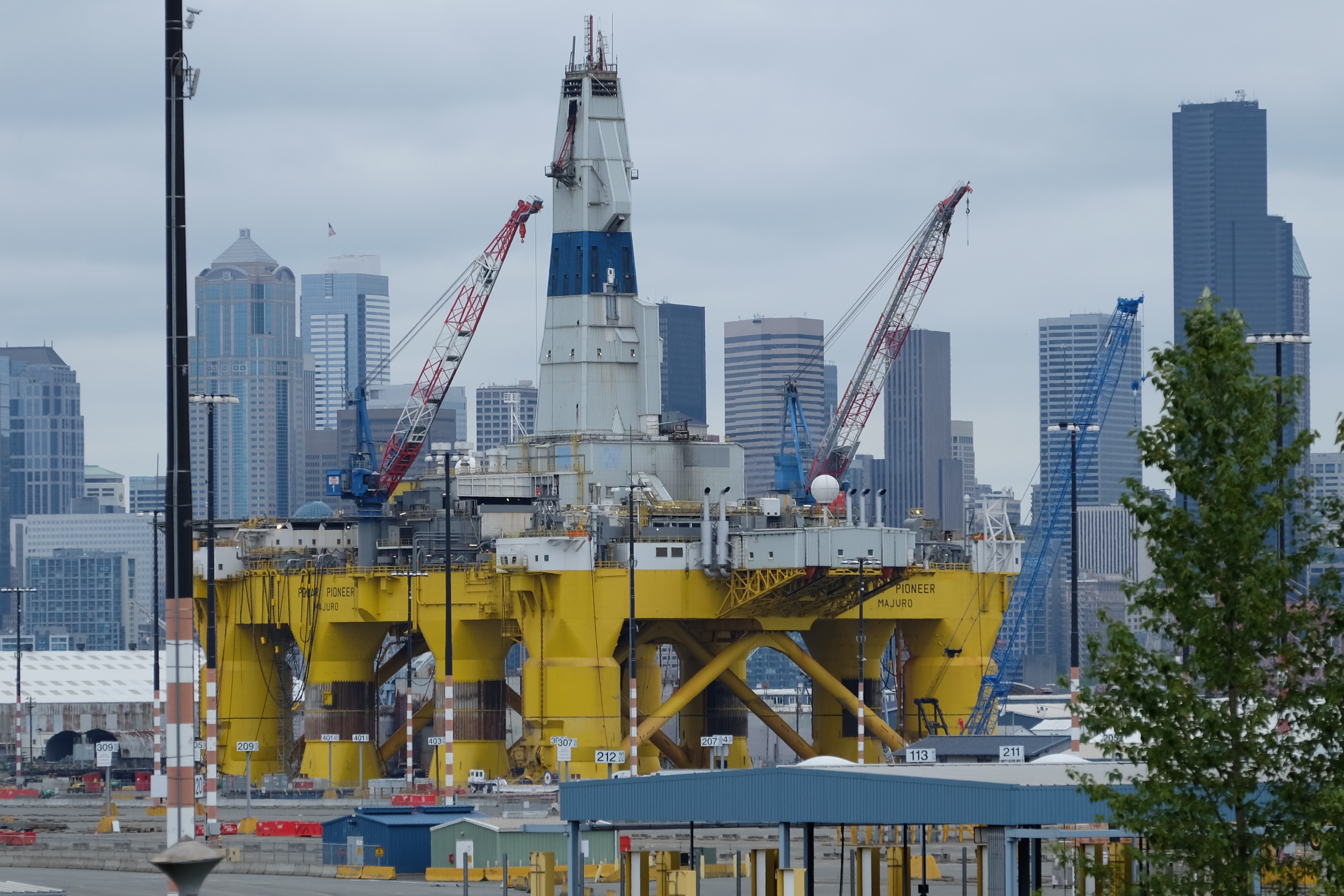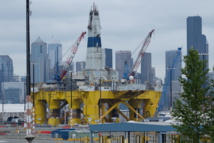On Monday morning, Royal Dutch Shell PLC announced the termination of work on oil exploration and production in the Arctic. According to the company, the decision was taken after analyzing the results from the well Burger J, located in the Chukchi Sea off Alaska. There, as the company said, "we have found signs of oil and gas", but "insufficient to continue the investigation." The well will be closed in accordance with US environmental requirements. Not only the well, but the entire oil-searching programme in the region is going to be closed.
- On this, Shell stops all the activities associated with the search for oil in Alaska for foreseeable future, - says the company’s statement. In addition to the unpleasant results of Burger J, the company point out the high costs associated with the project, and the unpredictability of "federal regulatory environment." Yet still, Shell continues to insist that the oil reserves in the Arctic are "significant."
The Alaskan project, which has already consumed $ 7 billion, was one of the most important and the most ambitious for the largest oil company in Europe. The company has found oil and gas reserves there for the first time in the late 1980s. The company stated that the oil and gas reserves in the coastal areas of Alaska are about ten times greater than the reserves in the North Sea. However, all activities were stopped in 2012 after a series of technical problems, not related to the actual presence of oil and gas. May this year, the company received the work permit once again, and launched the drilling program, designed for two years, in July 2015. In connection with the start of operations in July this year, Shell’s CEO Ben van Beurden said that oil and gas reserves in the area, where the company carries out drilling, "potentially surpass the largest projects in the Gulf of Mexico."
The company said it plans to make write-offs related to the decision. The estimated cost of the project, according to the company, was $ 3 billion, another $ 1.1 billion were related to the contractual obligations of the project.
Termination of Shell’s arctic program is likely to be welcomed with great joy by many environmental organizations, which insist on the fact that this program can have an extremely negative impact on the region ecosystem. Greenpeace activists have repeatedly carried out actions against the company and its property in Alaska, and among the active opponents of drilling in the Arctic were spotted Hillary Clinton and the head of the Anglican Church, Archbishop of Canterbury.
As for investors, analysts say, they may feel a little disappointed now, but, most likely, will understand and support the decision after some time. In particular, The New York Times quoted Biraj Borkhataria, RBC Capital Markets analyst:
- We think that the budget for drilling exploration may be more usefully spent elsewhere, - he said.
Shares of Royal Dutch Shell Class A on the London Stock Exchange fell by 1.55%.
source: nytimes.com
- On this, Shell stops all the activities associated with the search for oil in Alaska for foreseeable future, - says the company’s statement. In addition to the unpleasant results of Burger J, the company point out the high costs associated with the project, and the unpredictability of "federal regulatory environment." Yet still, Shell continues to insist that the oil reserves in the Arctic are "significant."
The Alaskan project, which has already consumed $ 7 billion, was one of the most important and the most ambitious for the largest oil company in Europe. The company has found oil and gas reserves there for the first time in the late 1980s. The company stated that the oil and gas reserves in the coastal areas of Alaska are about ten times greater than the reserves in the North Sea. However, all activities were stopped in 2012 after a series of technical problems, not related to the actual presence of oil and gas. May this year, the company received the work permit once again, and launched the drilling program, designed for two years, in July 2015. In connection with the start of operations in July this year, Shell’s CEO Ben van Beurden said that oil and gas reserves in the area, where the company carries out drilling, "potentially surpass the largest projects in the Gulf of Mexico."
The company said it plans to make write-offs related to the decision. The estimated cost of the project, according to the company, was $ 3 billion, another $ 1.1 billion were related to the contractual obligations of the project.
Termination of Shell’s arctic program is likely to be welcomed with great joy by many environmental organizations, which insist on the fact that this program can have an extremely negative impact on the region ecosystem. Greenpeace activists have repeatedly carried out actions against the company and its property in Alaska, and among the active opponents of drilling in the Arctic were spotted Hillary Clinton and the head of the Anglican Church, Archbishop of Canterbury.
As for investors, analysts say, they may feel a little disappointed now, but, most likely, will understand and support the decision after some time. In particular, The New York Times quoted Biraj Borkhataria, RBC Capital Markets analyst:
- We think that the budget for drilling exploration may be more usefully spent elsewhere, - he said.
Shares of Royal Dutch Shell Class A on the London Stock Exchange fell by 1.55%.
source: nytimes.com



















